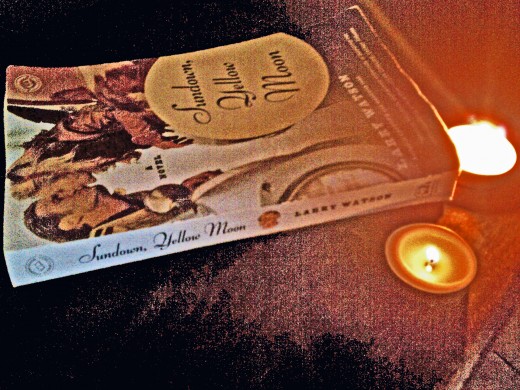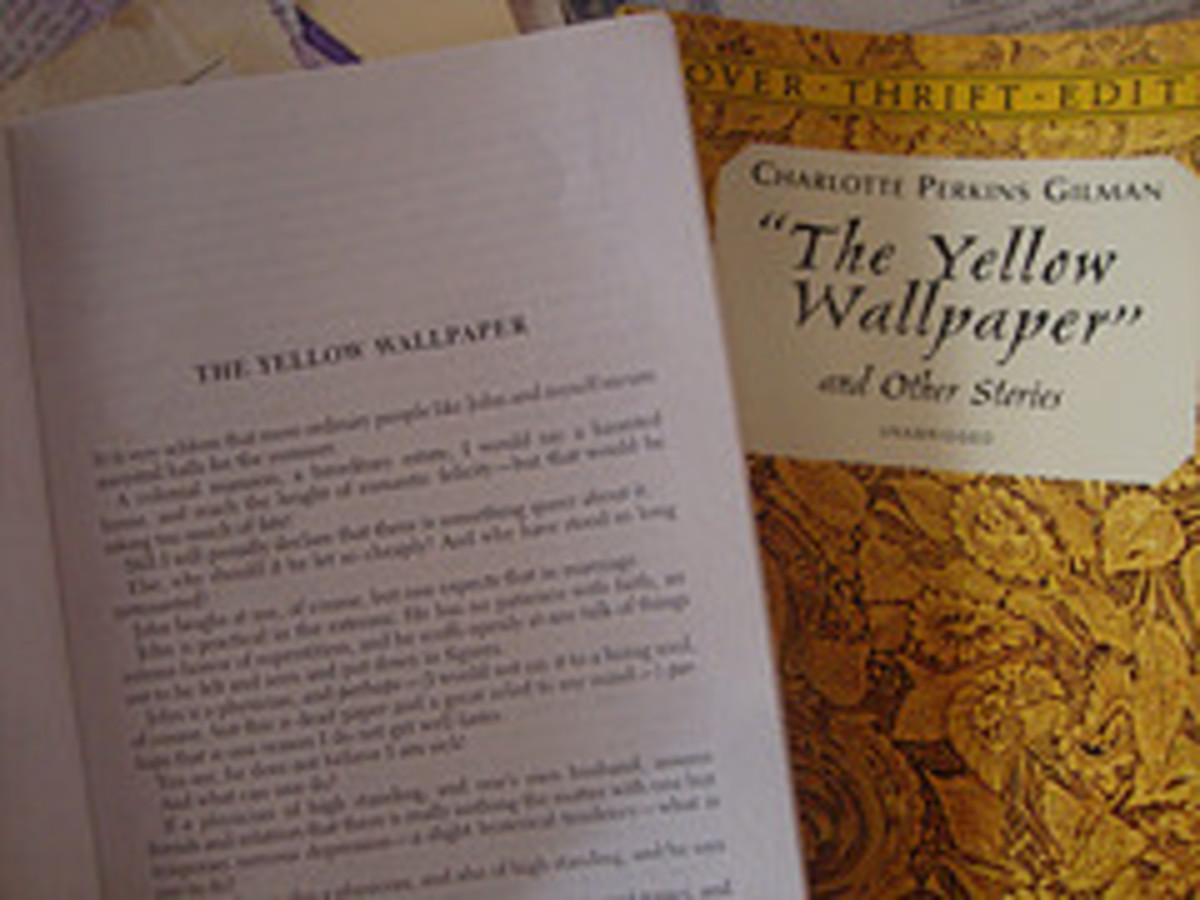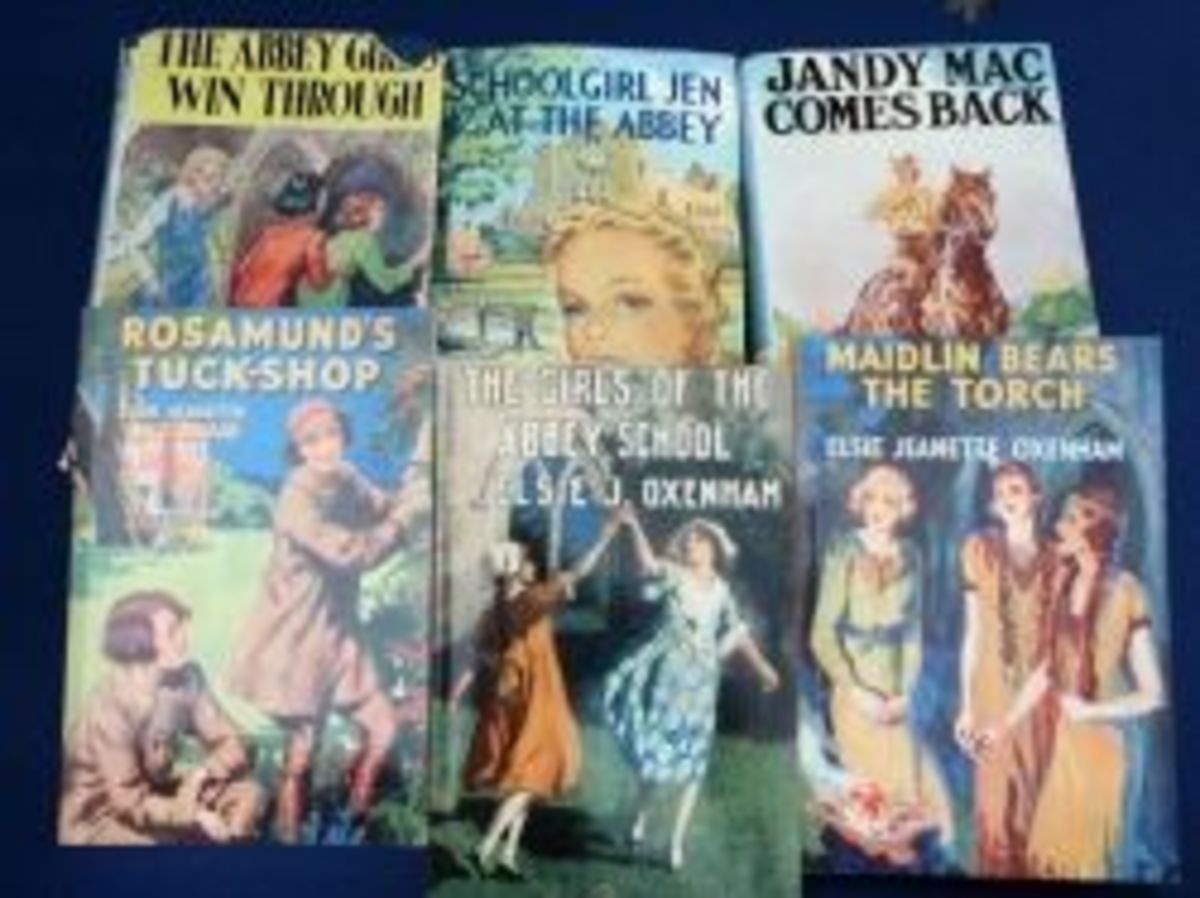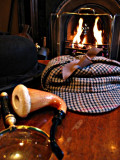Book Review: Sundown, Yellow Moon
...a rare peek into the creative mechanisms of the mind of author Larry Watson
SPOILER ALERT!!!THE FOLLOWING REVIEW DOES INDEED REVEAL SOME OF THE MORE POIGANT HIGHLIGHTS OF SUNDOWN, YELLOW MOON, !!!
Read Sundown, Yellow Moon holistically, that is my best advice for approaching this book. Sundown, Yellow Moon seems to me to be many things, but one thing it is not, is a linear nonfiction story. Author Larry Watson leads the reader through an intriguing opening wherein the narrators best friends dad shoots a Senator in North Dakota then goes home and hangs himself in his garage. The motives for the murder suicide are the spokes in the wheel that goes round and round through out Sundown, but the answer or the lack of evidence surrounding those events compel the narrator to rehash over and again theories put fourth by friends and family. The murder suicide is secondary though to the heart of this book.
This novel is a rare peek into the creative mechanisms of the mind of an author.

The characters portrayed throughout the pages of this book are as human and complex as any living breathing versions you may know. There is a nonlinear perspective that Mr. Watson leads his reader through as I mentioned earlier. For some of us, it may feel that you are settling in for a warm Western trail ride on an old mare, when the story suddenly kicks you off your predilections for a ride on a wild mustang of unpredictability. Although the story is seasoned with real life experiences (the author says at least one female character is loosely based on someone he knows) Watson's writing is, as some fans maybe have taken for granted, without affectation but still somehow intensely circumspect.
Read about all things Larry Watson here!
- Home - Larry Watson
The official website of Larry Watson, author of SUNDOWN, YELLOW MOON ORCHARD, MONTANA 1948, JUSTICE, LAURA, WHITE CROSSES, and IN A DARK TIME.
Please read another brief review of Larry Watson's work here...
- Robert Duvall, Let Me Point You To Your Next Great W...
As far as Western colored culture goes, there are two items that come to mind for me. The actor Robert Duvall (Broken Trail, Secondhand Lions, Lonesome Dove as well as a bajillion other movies, maybe two...
...live fully and store up experiences that may one day find their way into your art
The novel wastes no time in identifying and illustrating the zenith of actions of its key characters. There is a murder suicide that leaves friends, family and an entire community wondering why it happened. From the springboard of that event, the author weaves perspectives from various other characters, speculations and hypotheticals from everyone in the community as to the motive of the initial event. There are also many other interrelationship stories layered in throughout the book, and it is the contrast of these relationships that make Sundown, Yellow Moon analytically appealing. Romantic relationships between husband and wife, several young love relationships are identified and observed as well as some risqué philandering between adults. All of these human contacts are painted by Watson with brushes of verbiage that are sometimes very realistic and other times more impressionistic, with all the colors of life coming through in wonderfully unpredictable ways.
I am particularly drawn to the curmudgeon antagonist Raymond Stoddard and his son Gene who eventually wearily follows in some of his father’s heavy footfalls to a degree. Raymond is a person who is perpetually unhappy with his hand in life, and when he tries to step out of his rut, rather than assert himself past outside adversity, he is consistently overwhelmed by it. This intrinsic character flaw is shown well in an early scene in the book when Mr. Stoddard attempts to fry some fish given to him from a coworker. His son Gene and the narrator of Sundown (who is never named outright, I may have just saved you an hour of rereading and searching) watch as Gene’s dad prepares a fire pit in the yard, instead of using the boring old grills like everyone else:
(From page 50 of Sundown, Yellow Moon)
Mr. Stoddard seemed uncharacteristically lighthearted as he built the fire and fixed the meal, his mood perhaps attributable to what was in the glass he sipped from as he worked. He made a special effort to show us the steps of preparing the fish. He dipped the long white filets in the egg and milk, and then dredged them with a mixture of crushed soda crackers, corn flakes, and bread crumbs. He had placed an iron skillet with a half inch of oil on the rack over the fire, and when the oil was heated to bubbling, he dropped in the slabs of walleye. While he cooked and moved back and forth from the kitchen to the makeshift grill, he kept up an almost steady stream of talk, behavior as unusual as his mood. He chattered about how his father used to time himself-with his railroad watch-to see how quickly he could have the freshly caught fish transferred from the lake to the frying pan, and how the entire Stoddard family would get in on the game- calling out the time when their father pulled his boat up to the dock and then continuing to shout out the elapsed minutes.
Next door to the Stoddards’ lived Bill and Mary McCutcheon and their three children, a family fairly new to Keogh Street. While we were watching the fish fry, Mr. McCutcheon walked over from his yard to the Stoddards’.
“Your grill rust through or something?” Bill McCutcheon asked. “I would’ve loaned you ours.”
From the way he glowered at the fire and hesitated before answering it was apparent Mr. Stoddard didn’t welcome the question or the offer. “Just thought I’d try an open fire,” he said.
“Using a frying pan isn’t exactly the same, is it?”
Mr. Stoddard poked at the fish but said nothing. The smoke from the fire and the frying fish mingled in a blue-gray cloud, and when the wind blew it in Mr. McCutcheon’s direction, he waved it away with an exaggerated motion.
“That fish come with some guarantee of freshness?” Mr. McCutcheon asked. “Because I have to tell you, you can smell it up and down the block, and it sure as hell ain’t doing anything for my appetite.”
At this remark, Mr. Stoddard rose from his crouch next to the cooking fire and walked away without saying anything about where he was going or why. He soon came back with the spade he had used to dig the fire pit.
Still without explanation, he scooped up a shovelful of the loose dark loam from the pile next to the fire, and he dumped the dirt on the fish, pan, grill, and fire. The oil ceased its spattering with a final choking hiss, and the smoke plumed out to the sides. Raymond Stoddard kept shoveling dirt onto the fire until it was extinguished and only the frying pan’s handle struck up from the tiny burial mound.
“Jesus Christ, Ray,” Bill McCutcheon said, but I’m not sure Mr. Stoddard heard. When he finished shoveling, he flung the spade in the garden and marched toward the house. Gene and I followed him, and once we were all in the kitchen, Mr. Stoddard, his usual dark and doleful demeanor returned, announced that he would boil wieners for our supper.
As a writer I admire all the swimmingly attentive turns of phrase that make potent the connection to twentieth century man’s longing for a little bit of wildness in his life. Throughout the novel both Stoddard men exhibit intermittent bouts of abandon that is eerily weighed against the son and father’s tampered and bottled-up passion. Although Gene Stoddard comes out slightly ahead in the end surviving his sour genetic dispositions, Raymond is not so lucky. This passive aggressive behavior is absorbed and reflected later on in the story by his son. In some ways Gene is notably conscious of his fathers’ failings and avoids repeating some of the same behavior. In other ways Gene, like the saying goes, can’t avoid becoming his parents, as he later engages in actions that are dangerously dark in their own right. I find both Raymond and Gene to be tragic characters, nearly the entire novel is filled with antagonists with the unnamed narrator occasionally advocating as a protagonist, but still at odds with his own moral understanding of the world around him.
Herein lays the genius of the novel to me anyway. The narrator looks at the world as we all do, with a seemingly rational look at our friends, family and neighbors whereby we constitute our own inner narrative. How else could we live or draw conclusions in our own lives if we couldn’t make sense of each others actions? What Sundown does is question our ability to identify other’s actions. Over and again there is a delicious opacity to the narrator’s outlook that might be bewildering for some viewers. The narrator decidedly lives in a more ambiguous world of other’s subjective anecdotes, then a clear cut world of black and white impetus and reaction. Sometimes his voice is that of a naïve bystander almost voyeuristically identifying events, other times the narrator is a savvy provocateur for himself and the reader. Layers are built up in this way as the author carries out the trapeze act of telling a story within another anecdote within the greater picture of the story itself. What’s more Larry Watson goes a step further and rips down the holy curtain of storytelling and not only speaks about the mechanics of the plot in between vignettes, but he also relentlessly explains how the novel has been published before in different short story incarnations and for different publications! It is as if The Great Oz not only gets caught by Dorothy, but Oz-as-novelist then looks into the camera or mind’s eye of the reader, and speaks to them directly about how he was unsure of the means of telling the Tin Man about his missing cerebellum.
One such dissemination comes shortly after the narrators’ father and his father’s friend Ross Wilk finish a back and forth about Wilk’s hypothesis of the murder; along with a brief conclusion rendered about Wilk’s ideas between the narrators’ mother and father. The author then offers up a sort of poetic stream of verse in italics. One note before I transcribe my example: Sundown, Yellow Moon uses italics without relent so if you are taken aback by italics, this novel may confound you some. Me? I’m more a parenthetical guy. But here I digress, in the following example; you will see the emotive angles I just mentioned, as well as questions left unanswered that abound throughout the novel and are meant (I believe) to dilate the readers’ assumptions about their own expectations and interpretations of the murder. I hear the voice of Larry Watson, the narrator and even the projected thoughts of Raymond Stoddard, intermingled and of course, neatly italicized:
(From Pages 123-125 of Sundown, Yellow Moon)
Odd, how familiar it all is. Until recently, you’ve led a fairly respectable life, you’ve committed no previous criminal acts, yet this feeling of being ensnared, guilty, caught, trapped, culpable, is one you know. You took fifty cents from your mother’s purse. You stole a pack of your father’s cigarettes. You lied and told your girlfriend you wouldn’t be there, but then you were and so was she. The teacher compared your answers and your friend’s and found them the same. You denied, you dissembled, you cheated, you pilfered, you pretended….And you were caught. The scale so different, the potatoes so small, yet the feeling the same, as if now you are fulfilling your entire life’s promise, finally enacting what you have rehearsed so long. Though now it may be the police/congressional committee/investigative journalist/government agent closing in on you, it feels no different from trudging home from grade school when you knew the phone call from the principal would arrive before you. It seemed then, as now, that the world was about to end.
Now you know of course that it will be over only for you. Or…?
It’s the only question that remains. Should you take your brother-in-law/old friend/former classmate/colleague out with you? To do so would be murder, an act of rage, retribution revenge, or, less grandly, of petulance, but murder without question. Yet it would also contain an element of justice. It’s quite possible that your death will end the investigation, close the case, stop the proceedings. Once, after all, a guilty party is identified and found, no one feels quite the same need to uncover another. So, who, if not you, can guarantee punishment to the blameworthy? In this you may well have a mission, a meaning, a reason for being that you never had when your life was innocently your own…
---
That story, if it can be called that, was published in Epiphanies, another now-defunct publication. It was one of the longest pieces ever to appear in the avant-garde magazine; many of the “discoveries and revelations,” as the editors said they featured in their pages, were no more than a paragraph. The story’s McInerney-fashionable (at the time) second-person point of view probably gave it special appeal to the Epiphanies staff, but its source, of course, was that conversation between Ross Wilk and my father when Mr. Wilk speculated that in the corruption of the workplace Raymond Stoddard’s murderous intention was born.
The author takes us on a multilayered narrative path that is partially a hypothesis of one of the minor characters, another part the voice of the narrator, another part questions aimed directly at the reader through this composite voice, and lastly the voice of Larry Watson himself, explaining the shift in point of view from earlier in the novel! Which brings me to another major artery in the body of Sundown’s text, this story is not just the tale of a murder suicide, nor is it only the tale of a young narrators’ look back at his youth out West in the early 1960’s. It is also an examination of the readers’ conceptions of what a story is, along with a writhing look at how this author pens a novel. It’s a lot to digest! It is in many ways, at least from my humble point of view, a story that is written for authors.
That doesn’t mean it can’t be enjoyed by non-authors, but it does mean that there are complexities, nuances and liberties taken with storytelling that most writers would shy away from, fearing perhaps, that they might alienate their readers. For me, as a life long writer and visual artist, it reminds me of the difficulty people have with art that is non-contextual, or merely patterned. If art isn’t rendered to look illustratively like an icon, than in many pedestrian viewers’ eyes that art is a failure. But for artists, and more sophisticated viewers, oftentimes art that creates more questions than answers is more redeeming than obvious delineations in subject. Such as it is, Sundown, Yellow Moon makes no apologies for leaving many strings to be pulled in it’s questions left unanswered by it’s own characters, the unnamed narrator and the author himself, and I like that.
Lastly, I would fail my own writing instincts in this review if I did not mention at least a little of the passion-turned-to-lust side of Sundown, Yellow Moon. There are several vignettes throughout the book that might shock the more timid reader. While reading I was more than once reminded of the shocking (at least for me) breastfed ending to Steinbeck’s Grapes of Wrath, although that perturbation was more of a queerly sensual twist, and the tension exhibited in Sundown is positively more sexual. I will not spoil the book by transcribing some of the more interestingly lurid text, but instead I chose one of the more delicate scenes, where the narrator finally finds his girlfriend Marie Ryan, who last he heard, was pregnant with his child. Personally this is one of my favorite passages in the novel; Watson’s outlook on relief is priceless and gently funny:
(From pages 261-261 of Sundown, Yellow Moon)
I had driven her away by failing to respond as I should have to the news she had brought me, and now I was failing again and knew it even while it was happening. She had brought herself to me-back to me-and rather than overturning the table-or any other obstacle standing between Marie Ryan and me-and wrapping her in my arms, I remained where I was across the room, noting her brand of cigarettes, the angle of her shoes under the table, the pallid green of the Coke bottle contrasting with the living green of her eyes. In my life there have been so many times when, rather than like a hand opening and reaching, I have been a fist, closed and tight. I have never told my writing students this, but I have long known there are two ways to make use of yourself in your fiction: You may stand back and notice, as Saul Bellow says is our human purpose, or you may live fully and store up experiences that may one day find their way into your art. The cigarettes were Pall Malls. The toes of her loafers were scuffed because when she sat in a chair, she usually folded her legs under, with her toes touching the floor.
At least I had the good sense-or was it so?-not to immediately demand where she had been or to try to shame her with all the searching I had done.
“Look,” I said, “I’m sorry. I’ve had time to think about it. And really, it’s good news, you being pregnant, and we-“
She waved off my little speech. “Forget it. My mistake. False alarm. Aunt Bertha’s back.” It was a phrase Marie and her friends used as their euphemism for menstruating.
“You’re sure?”
“Please. Give me some credit. Yes, I’m sure.” She crushed out her cigarette and closed her textbook. “Relieved?”
And I knew enough not to answer that one. “I was worried about you.”
“I know, I should have called you. I was pissed off. What can I say? I’ve just been so on edge lately. I think it’s that statistics class-it’s killing me.”
“So where were you?”
“A girl down the hall from me was driving to Minneapolis, so on a whim I said I’d ride with her. I stayed with my sister.”
I hadn’t thought to call there. “I was worried…”
I should have called. I know that. I’m sorry.”
We might have continued like that, mired in my guilt-inducing expressions of worry and her subsequent apologies, but Marie saw a way out. She walked over to me, looped her arms around my neck, and kissed me vehemently enough to loosen-slightly-my clenched self.
If you have never experienced simultaneous passion and relief, I recommend it; the concoction is powerful and obliterating. It mattered then only that I was holding her again.
After a few moments of breathless kissing, I turned Marie around 180 degrees and pulled her tight to my chest. She reached up and back and again put her arms around my neck. This exposed her exactly as I wanted, allowing me to unbutton her blouse and caress those magnificent breasts. Gradually I ran my hands down the concavity of her stomach and dipped my fingers inside her waistband. Since her slacks rode low-hip-huggers, in the parlance of the day-that move brought me very close to where I wanted to be.
Here again we see Watson addressing the reader as himself, as well as the nameless narrator speaking, as well as a dialogue between the narrator and Marie Ryan his love interest. There is much more to the story between the narrator and Marie Ryan than I am letting on, it involves a triangle of acute proportions. Though not nearly as acute as the hypothetical triangle between Raymond Stoddard, his wife and another character that I won’t mention here, suffice it to say I hope I have whet your appetite because it’s red hot! In the passage I transcribed above though, the passion displayed by the narrator, and the physical generosity of Marie Ryan, redeems the narrators’ youthful clumsiness. The curt chatter of the two teens is at the heart of the dialogue here I think. Emotions are fired out at each other with the raw kind of passion of not-to discerning teenagers and capturing that dialogue realistically is nothing short of a miracle.
As Watson generously shares above, “You may stand back and notice, as Saul Bellow says is our human purpose, or you may live fully and store up experiences that may one day find their way into your art.”
Saul Bellow is a Nobel Prize winning as well as other international award winning novelist and playwright of Midwestern and Canadian renown: Herzog (1964), Humboldt’s Gift (1975). As an artist and author those words speak to me greatly and Watson delivers that philosophy in the actions of Sundown, Yellow Moon. This artist has been mostly storing up, decidedly wondering if my experiences have found there way into my art. Clearly Larry Watson’s has, although I heard he’s a big college basketball fan, and as of yet, no lay-up metaphors, thankfully so.
There is so much more to this book and I have truly only indulgently touched on some of my favorites. There is more intrigue, more introspective insight, and more enthusiastic character development than this humble reviewer could keep track of, thankfully Larry Watson does and does it superbly. Check out Sundown, Yellow Moon you won’t be disappointed. Most books that I’ve read in my life try to tell you something about the author or his friends, or some varied version of past events familiar or universal and Sundown does that, but the story also points the lens at you and asks, what do you think happened?
You can purchase Sundown, Yellow Moon on Amazon or better still ask for it at your local family bookstore!
More verbiage from Ben Zoltak
- Amazon Published My First eBook! Follow My Progr...
I know what those of you who know my writing are thinking: Hey Ben what's with all the exclamations! These sentences are exclamations of joy kind reader! I finally tied my first eBook together and published on the Kindle format of Amazon.Com. The... - Message to Chinese President Hu Jintao: RELEASE LIU ...
From the same country that brought you the execution of Food and Drug Administration director Zheng Xiaoyu, China continues to detain Nobel peace laureate Liu Xiaobo in prison. This Chinese professor was... - Chicago A Concrete River I Miss
The author on Lincoln Avenue at sunset. Photo by: Isabella Zoltak Winds rushing past on Lincoln Avenue gravel Asphalt and lots of grit mixed with gasoline There are cars racing by in monotonous buzzer... - Ode To Poe: Oh Nasty, Smelly, Stained Carpet
Oh nasty, smelly, stained carpet You are a dead Mammoth In my abode A dead Mammoth That throngs of drunkards and Poorly groomed dogs Have micturated upon Nasty, Smelly, Stained Carpet Though I spent 48... - Flying Car Island
Fuel leaked onto his hand. He felt the cool evaporation of ethanol quiver quickly along his arm hair. He trembled pouring the reserve tank and tiny - Your Waitress Or Waiter Is Probably Smarter Than You
This image was brought to you by the U.S. Army baby, hubba hubba! Waitresses and waiters are often students of academia and always students of life. They get to see all sides of the public. They witness hubris on a scale not seen by someone who...









